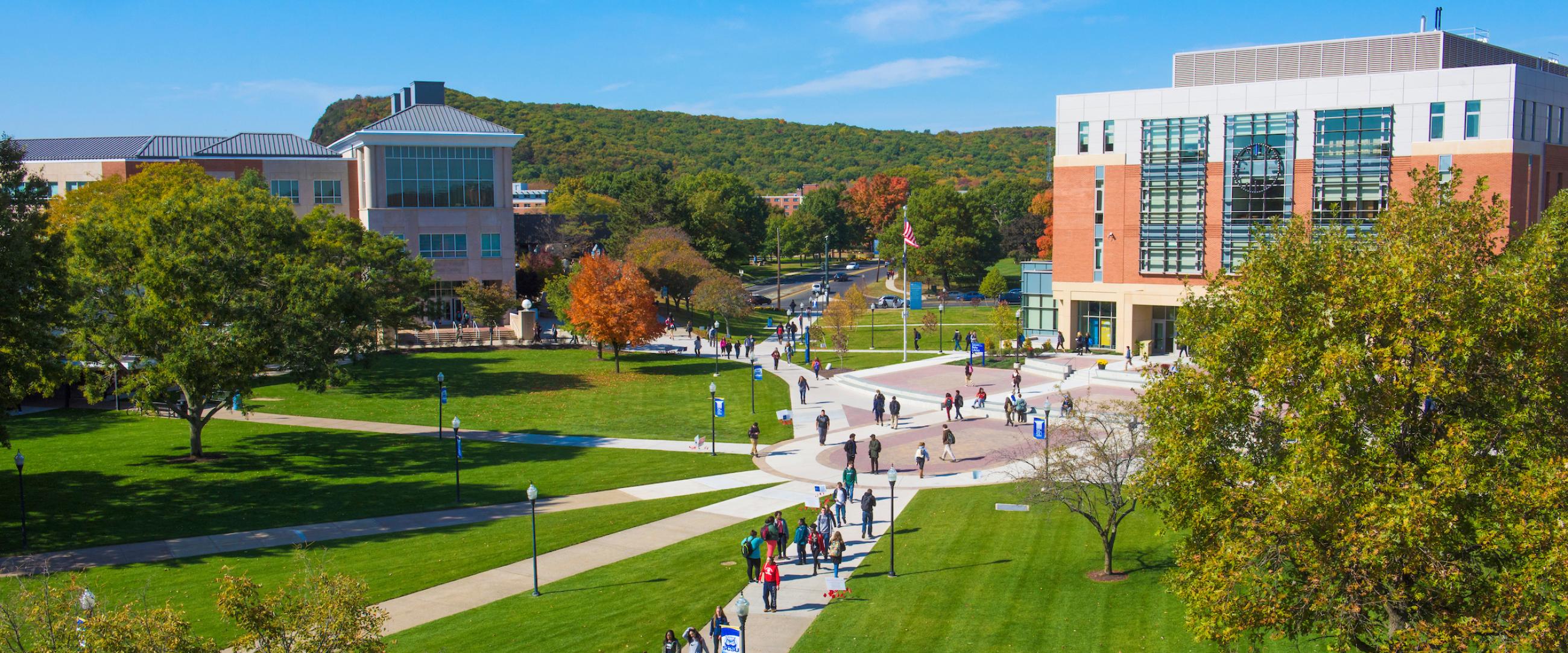Anthropology, the scientific study of humanity through a comprehensive, holistic approach, covers humankind from the earliest times to the present. It includes the major subfields of archaeology, biological anthropology, cultural anthropology, and linguistic anthropology. Students learn how different groups live with each other and how human diversity has evolved. As globalization increases, so does the need for anthropologists.
The Anthropology program at Southern educates students on the principles of anthropological knowledge through critical thinking, reading, and writing skills. A strong foundation in anthropology is achieved through classroom participation, individual mentoring, fieldwork opportunities, and collaborative scholarly research. Students acquire the skills needed to achieve success in a diverse and increasingly complex cultural environment through a better understanding of human diversity, contemporary as well as ancient; an advanced knowledge of human evolution; a comprehensive understanding of the challenges facing humanity today; and a broader appreciation for the complexity of culture as it shapes human communities and societies. The program creates a space for students to explore the human condition as they develop a more sophisticated understanding and appreciation of human variation across the globe and through time. Students in this program will be well prepared for advanced education in the discipline or well-positioned to integrate anthropological knowledge into their future professional endeavors.
Program Features
The skills you develop in this program can serve you whether you move on to the workforce, advanced study in anthropology, or study in another field.
- Research
- Analysis
- Communication
- Foundational global information
- Respect and concern for other cultures and peoples
We encourage students to take advantage of faculty-led fieldwork opportunities in Ethiopia, the Dominican Republic, and Peru. Our bio-archaeology lab and nearby archaeology field school provide hands-on learning. Students become familiar with the application of anthropology while working on faculty research projects.
Concentrations
Anthropology, B.S. - General
Anthropology, B.S. - Archaeology
Anthropology, B.S. - Biological
Anthropology, B.S. - Cultural
Learning Outcomes
Synthesize arguments and lines of thought relevant to the human condition.
- Students are able to analyze and describe the importance of meaning and interpretation in relation to cultural, biological, archaeological, and linguistic analyses of the human condition.
- Students are able to analyze relationships between past and present, and local and global dimensions of human behavior and social life.
- Students are able to recognize the consequences of power and inequality within and between societies.
Articulate key themes and concerns within the four sub-disciplines of cultural, biological, archaeological, and linguistic anthropology.
- Students are able to explain the importance of human culture for individuals and social groups.
- Students are able to evaluate the evidence for evolution in the human species over the past eight million years.
- Students are able to analyze the material remainders of the human past and describe the importance of archaeological artifacts.
- Students are able to explain the role of language in creating worldview and social meanings.
Demonstrate ability to clearly communicate verbally and in writing.
- Students are able to construct analytical essays and research papers with clearly delineated logical arguments and clear rhetorical structure.
- Students are able to use proper technique in written work, including the use of citations and bibliography, correct grammar, spelling, and punctuation.
- Students are able to deliver a presentation based on anthropological research to a classroom audience.
Demonstrate ability to understand and apply theory in anthropology.
- Students are able to demonstrate a critical understanding of anthropological concepts and correct usage of terminology within the discipline.
- Students should be able to evaluate anthropologic texts and understand and describe the major principles, controversies, and critiques.
- Students should be able to demonstrate knowledge of diverse ways of being human, past and present.
Demonstrate ability to conduct research in anthropology.
- Students are able to demonstrate an appreciation and knowledge of ethical practice in anthropological research.
- Students are able to demonstrate the ability to synthesize and analyze multiple authors, perspectives, and arguments.
- Students should be able demonstrate a complex understanding of anthropological methodology in at least one of the four subdisciplines.
Careers
Our anthropology students choose from a diverse array of career pathways. Those who move on to advanced work in a discipline study at top-tier research institutions. Many of our graduates opt for the challenge of volunteer experiences by serving in the Peace Corps, Americorps, and Teach for America. Other students continue into advanced study in education, teaching English as a Second Language (ESL), history, or medicine, and other related disciplines. We have alumni working in cultural resource management, cybermarketing, forest service, education, forensics, health care, and social work. Other alumni have taken their anthropological skills into entrepreneurial ventures and have started their own businesses. One of our graduates runs a wilderness nature school, and another has started a business in the travel industry. As globalization increases, so does the need for anthropologists.
Typical Job Titles
- Cultural Anthropologist
- Archaeological Field Technician
- Community Outreach Coordinator
- Public Health Advocate
- Cultural Resource Manager
- Nonprofit Program Director
- Archaeological Field Assistant
- Nonprofit Program Coordinator
- Cultural Heritage Coordinator
- Environmental Analyst
- Ethnographer
- Public Health Advocate
- Humanitarian Aid Worker

